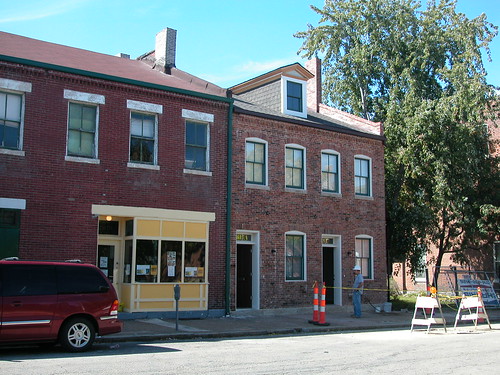Contact: Scott Holste, (573) 751-0290
Scott.Holste@mo.gov
Sam Murphey, (573) 751-0290
Sam.Murphey@mo.gov
FOR IMMEDIATE RELEASE
July 21, 2010
Gov. Nixon creates new commission to perform comprehensive review of state tax credit programs
Panel of business and community leaders, legislators will make recommendations to enhance job creation, boost return on investment for state
JEFFERSON CITY, Mo. – Gov. Jay Nixon today announced the creation of a Tax Credit Review Commission that will review the state’s 61 tax credit programs and make recommendations for greater efficacy and enhanced return on investment. Gov. Nixon named 25 business, community and legislative leaders to serve on the commission.
“Missouri must have sharp, effective development tools that will promote growth, create jobs, strengthen our communities and continue to drive our economic recovery forward,†Gov. Nixon said. “This commission will perform a critical analysis to ensure taxpayers receive the greatest possible return on investment from tax credit programs and that those programs are used efficiently and effectively. The work of the commission will play a vital role in reshaping the way the state uses financial incentives to achieve those important goals.â€
The commission will analyze the efficacy and return on investment for each of the state’s 61 tax credit programs and make recommendations for modifications as appropriate.
Gov. Nixon appointed Steve Stogel and Chuck Gross to co-chair the Tax Credit Review Commission. Stogel is the President of DFC Group in St. Louis; Gross is the director of administration for St. Charles County. They are joined on the commission by leaders from the development, education, finance and labor communities, as well as members of the Missouri General Assembly.
From the Missouri Senate, Gov. Nixon named Sen. Matt Bartle (R-Lee’s Summit), Sen. Jolie Justus (D-Kansas City) and Sen. Robin Wright-Jones (D-St. Louis). Gov. Nixon’s appointees from the Missouri House are Rep. Tim Flook (R-Liberty) and Rep. Sam Komo (D-House Springs).
Gov. Nixon also named: Zack Boyers of U.S. Bancorp Community Development Corporation in St. Louis; Mark Gardner of Gardner Capital in Springfield; Luana Gifford of the American Federation of Teachers in Jefferson City; Bill Hall of Hallmark in Kansas City; Dee Joyner of Commerce Bank in St. Louis; David Kendrick of the Kansas City Building and Construction Trades Council; Alan Marble, President of Crowder College in Neosho; Troy Nash of Zimmer Real Estate Services in Kansas City; Melissa Randol of the Missouri School Boards Association in Jefferson City; Tom Reeves of Pulaski Bank in St. Louis; Penney Rector of the Missouri Association of School Administrators in Jefferson City; Russ Still, a member of the State Board of Education from Columbia; Craig Van Matre, a member of the Coordinating Board for Higher Education from Columbia; Ray Wagner of Enterprise Rent-A-Car in St. Louis; Todd Weaver of Legacy Building Group in St. Louis; Shannon Weber of the Carpenters’ District Council of Greater St. Louis and Vicinity; Mike Wood of the Missouri State Teachers Association in Jefferson City; and David Zimmerman of the Sheet Metal Workers International Association, Local 36 in St. Louis.




